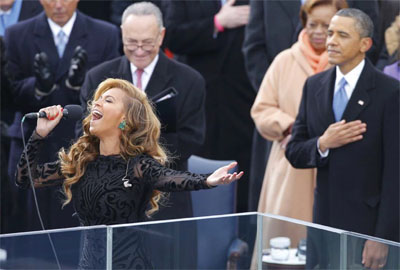
The American National Anthem memorializes one of the key moments in American history which took place in Baltimore during the War of 1812. When Francis Scott Key saw the American flag flying above Fort McHenry amidst the cannon fire during the Battle of Baltimore, he was inspired to write the historic poem “Defence of Fort McHenry” that would be put to music to become “The Star-Spangled Banner”. The song would become the official American National Anthem on March 3, 1931.
Fort McHenry and the War of 1812
During one of the War of 1812’s most significant battles, the Battle of Baltimore, the British mounted land and sea attacks on Baltimore after the Burning of Washington in an attempt to capture the Port of Baltimore. Held at bay by militia on land at North Point, the British Navy then unleashed a barrage of cannons upon Fort McHenry for 25 hours straight through the night of September 13-14, 1814, with the goal of breaking through and taking Baltimore Harbor. The city of Baltimore was dark, with all of its lights put out for the battle, but for the lights of the cannon shells which were exploding in the darkness and casting a glow on the 30-foot flag with fifteen stars and fifteen stripes that was flying high above Fort McHenry, proving the fort was still standing. The flag was crafted by local Baltimore flag maker Mary Pickersgill and her 13-year-old daughter. After failing to seize the fort, the British retreated, marking a major turning point in the War of 1812.
Francis Scott Key Writes “Defence of Fort McHenry”
Positioned on a British truce ship, the HMS Tonnant, on the Patapsco River while the attack on Fort McHenry was waged, Francis Scott Key, a 35-year-old American lawyer and amateur poet, watched in awe as British cannons failed to do any significant damage to the fort. He was on the British ship to negotiate the release of one of its prisoners, Dr.William Beanes, a resident of Upper Marlboro, Maryland. Key’s roots in Maryland ran deep as the son of an officer in the Maryland Rifle Company (and later the Frederick County Company of Cavalry) of the Continental Army during the American Revolution. Francis Scott was born in Frederick County (the site of his birthplace is now within the borders of Carroll County), and he went to law school at St. John’s College in Annapolis, Maryland. His far-reaching impact on American history would begin to take shape as soon as the smoke cleared on the morning of September 14, 1814. He penned his experience of that fateful night on the back of a letter in the form of a poem he entitled “Defence of Fort McHenry,” which was published in the Patriot and then widely distributed in pamphlet and sheet music form.
The Star-Spangled Banner becomes the American National Anthem
The American National Anthem memorializes one of the key moments in American history which took place in Baltimore during the War of 1812. When Francis Scott Key saw the American flag flying above Fort McHenry amidst the cannon fire during the Battle of Baltimore, he was inspired to write the historic poem “Defence of Fort McHenry” that would be put to music to become “The Star-Spangled Banner”. The song would become the official American National Anthem on March 3, 1931.
THE NATIONAL ANTHEM OF THE UNITED STATES
O say can you see, by the dawn’s early light,
What so proudly we hail’d at the twilight’s last gleaming,
Whose broad stripes and bright stars through the perilous fight
O’er the ramparts we watch’d were so gallantly streaming?
And the rocket’s red glare, the bomb bursting in air,
Gave proof through the night that our flag was still there,
O say does that star-spangled banner yet wave
O’er the land of the free and the home of the brave?
On the shore dimly seen through the mists of the deep
Where the foe’s haughty host in dread silence reposes,
What is that which the breeze, o’er the towering steep,
As it fitfully blows, half conceals, half discloses?
Now it catches the gleam of the morning’s first beam,
In full glory reflected now shines in the stream,
‘Tis the star-spangled banner – O long may it wave
O’er the land of the free and the home of the brave!
And where is that band who so vauntingly swore,
That the havoc of war and the battle’s confusion
A home and a Country should leave us no more?
Their blood has wash’d out their foul footstep’s pollution.
No refuge could save the hireling and slave
From the terror of flight or the gloom of the grave,
And the star-spangled banner in triumph doth wave
O’er the land of the free and the home of the brave.
O thus be it ever when freemen shall stand
Between their lov’d home and the war’s desolation!
Blest with vict’ry and peace may the heav’n rescued land
Praise the power that hath made and preserv’d us a nation!
Then conquer we must, when our cause it is just,
And this be our motto – “In God is our trust,”
And the star-spangled banner in triumph shall wave
O’er the land of the free and the home of the brave.




Be the first to comment